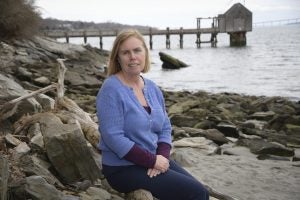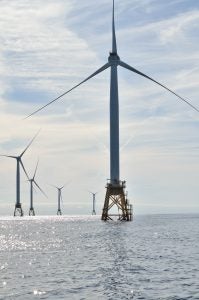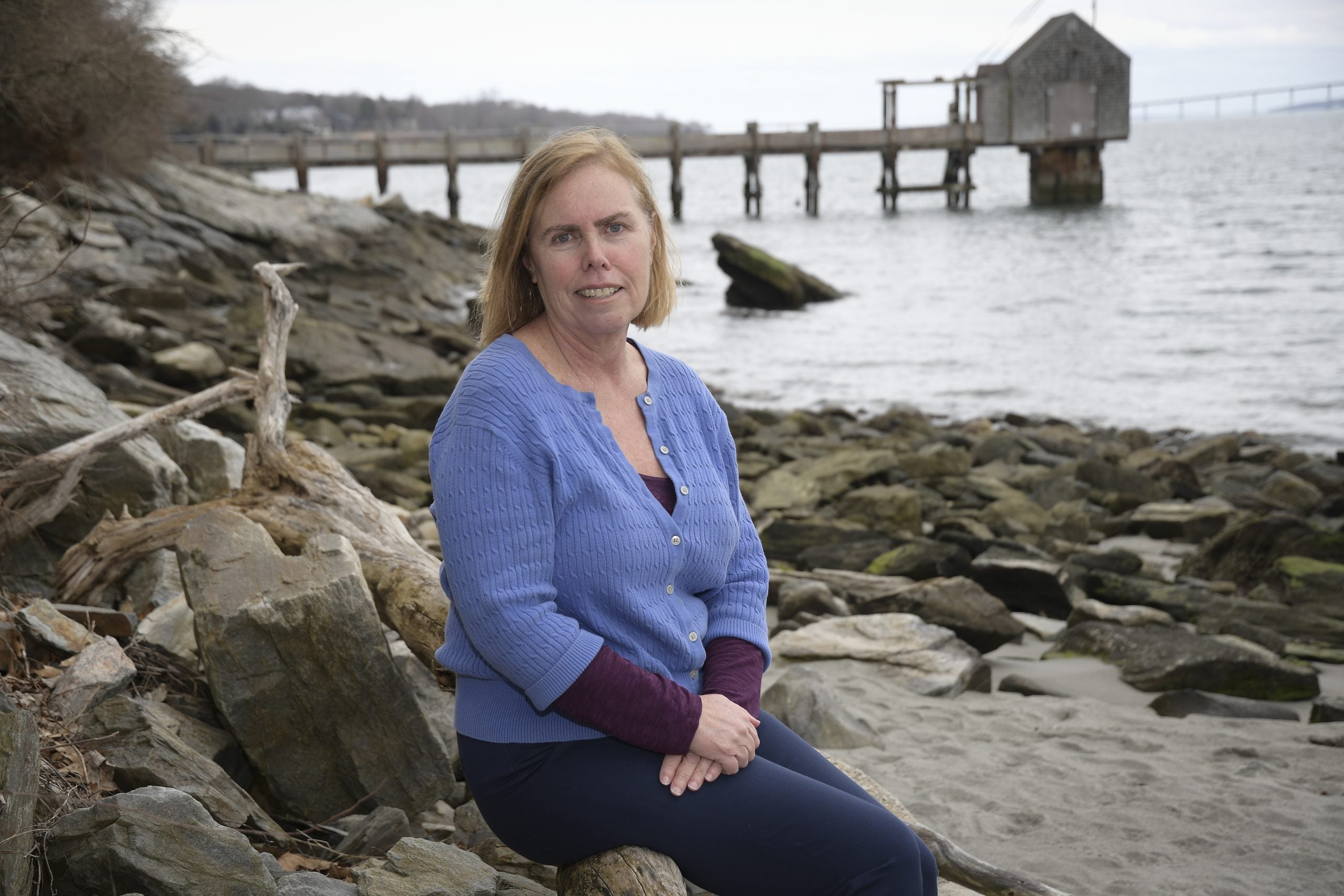Rhode Island became the first state in the nation to have an operational offshore wind farm in 2016 after an extensive planning process that identified an optimal location and addressed environmental, technical, and logistical concerns and user conflicts.
Today, larger offshore wind farms are planned along the U.S. coast. These will affect many communities, and their coastal leaders and managers are seeking to rapidly educate themselves on the latest research and policy knowledge regarding their development, operations, and how communities can and should respond to these proposals.
 Rhode Island Sea Grant Extension Director Jennifer McCann selected to serve as the Offshore Wind Energy Liaison for the National Sea Grant College Program.
Rhode Island Sea Grant Extension Director Jennifer McCann selected to serve as the Offshore Wind Energy Liaison for the National Sea Grant College Program.
Having developed expertise in this realm from managing the policy and outreach for Rhode Island’s Ocean Special Area Management Plan, which led to the development of the Block Island Wind Farm, Jennifer McCann has been selected as the Offshore Wind Energy Liaison for the National Sea Grant College Program in partnership with the U.S. Department of Energy. McCann, the extension director for Rhode Island Sea Grant, will seek to strengthen Sea Grant’s network capacity to contribute and respond to the nation’s rapidly evolving offshore wind energy development.

The Block Island Wind Farm led the way for subsequent offshore wind proposals around the U.S.
“This is a great opportunity for Rhode Island Sea Grant to share the body of knowledge developed in Rhode Island about offshore wind energy with the broader network of Sea Grant programs and the communities they serve. Jen McCann’s many years of experience in offshore wind energy development make her an excellent choice to lead this effort,” says Tracey Dalton, Rhode Island Sea Grant director.
McCann has spoken with many Sea Grant practitioners to assess their needs for offshore wind energy knowledge and tools to support their work with stakeholders, from fishermen, to supply chain businesses, to conservationists. Educational efforts like webinar programs and a website featuring curated offshore wind energy resources will be available to Sea Grant staff and the public at large and will cover a variety of relevant topics, such as impacts to commercial fisheries, building a skilled workforce to support offshore wind energy, and integrating offshore wind activities into ocean planning efforts.
Learn more about Jen’s work on the Ocean SAMP here.

